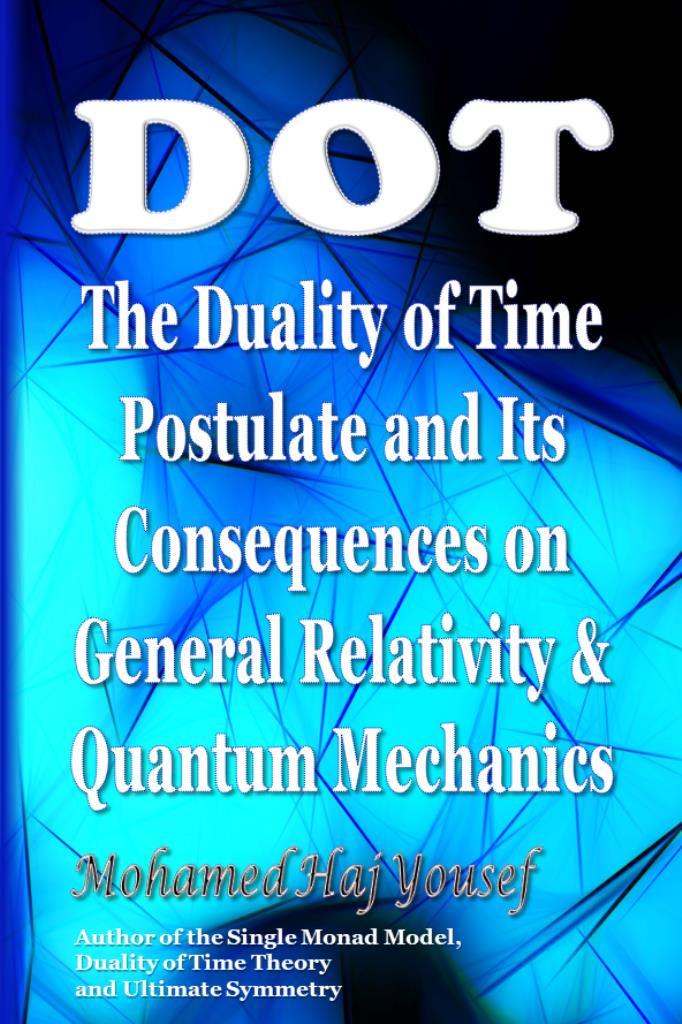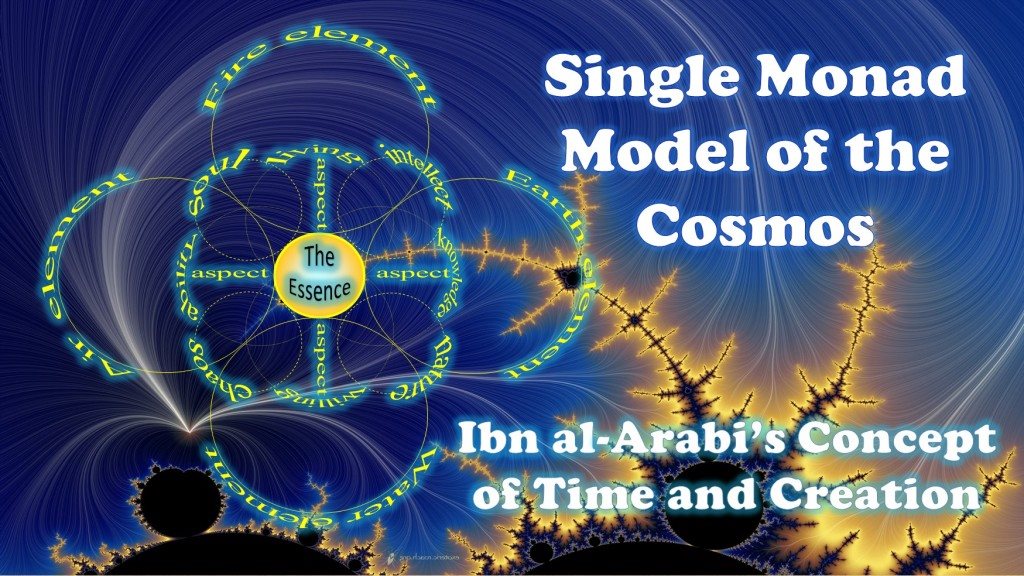3. The Unicity of God and His Names:
According to Ibn Arabi and to Islam, and also some other religions, Allah is both One (Wahid) and 'Unique' (al-Ahad, 'the Unit').[82] The first attribute means that He is one God (not many) and the second attribute means that He is not divisible into other entities. Moreover, as is indicated by the more metaphysically problematic second attribute of 'Unicity' (ahadiyya), we can not describe Him as a single entity (like other entities) with specific dimensions that are placed somewhere in space or began at a point of time. Allah is simply uniquely different from whatever we may know or imagine. We can not achieve full knowledge or awareness of the Essence (Dhat) of Allah because this is beyond our perception. It is, however, possible to describe Him and speak about His Attributes and divine Names, for example as they are mentioned in the Qur an and the Sunna. We may attain knowledge about the divine Names and descriptions of Allah, but not about His Essence (Dhat) Himself. As Chittick has pointed out, for Ibn Arabi: 'God is known through the relations, attributions and correlations between Him and the cosmos. But the Essence is unknown, since nothing is related to It' (SDK: 62). Whatever the human being may know about Allah is therefore in the end partial and incomplete. No one can ever achieve full knowledge or awareness of Him; the maximum knowledge one might achieve of the Essence of Allah is to know that He is different from anything [IV.301.17]. Ibn Arabi expressed this nicely in his prayers: 'it is enough for me that You know my ignorance. You are as I know, and beyond what I know to a degree that I do not know.' (Beneito 2000: 131-2)[83] This is because we may know Him only through His manifestations in us and in the world, but His manifestations are never exactly repeated.
Human Being, however, is the creature most capable of knowing Allah, the Exalted, because when He created Adam (the Perfect Human Being), He taught him all the Names (2:31)[84] and ordered the angels to prostrate before Adam out of respect and acknowledgement (2:34, 7:11, 17:61, 18:50, 20:116, II.46.33). But knowing Allah is an infinite process for us, because Allah Himself is not finite, in the sense that He never manifests in the same form twice [I.266.10], and also because His manifestations reveal some of his attributes and descriptions, but do not fully reveal His ultimate Essence or Identity. Ibn Arabi summarizes this by saying, in one of his many elaborations of the famous Divine Saying of the 'Hidden Treasure', that:
Allah, the Exalted, 'loved to be known' in order to grant the world the privilege of knowing Him, the most Exalted. But He knew that His Identity (Essence) can not be (completely) known and nobody can ever know Him as He knows Himself. The best knowledge that can be achieved about Him, His Highness, in the world is that the knowers know that they do not know. And this (human inability to know the Essence) is (also) called knowledge, as the Righteous (Abu Bakr al-Siddiq) said: 'The incapacity to attain realization is a realization.'[85]
[III.429.7]
As Ibn Arabi notes elsewhere, the Prophet Muhammad has also clearly expressed this same recognition by saying: 'I can not enumerate the ways of praising Thee: Thou art as Thou has praised Thyself' [Kanz: 2131, 3652, I.126.15, I.271.5, etc.], and Allah also said:
but they do not encompass Him with knowledge (20:110).
Of course the Prophet Muhammad also said: 'Allah has ninety-nine Names, one hundred less one: whoever enumerates them is going to enter the Garden' [Kanz: 1933, 1934 and 1938]. However, this does not
restrict the divine Names to ninety-nine, as some Muslims misunderstand it. In fact Ibn Arabi says that the divine Names of Allah are countless and that everything in the cosmos is a divine Name. But the ninety-nine enumerated Names are the principal Names [IV.288.2] that have been mentioned in Qur an and Sunna. Moreover, although each Name of the divine Names is different from others, Ibn Arabi repeatedly cautions his readers that all that Names are intrinsically implicit in each one of them, which is to say that each Name can be described by all the other Names [I.101.5]. However, despite the multiplicity of these Names, they all refer to the same One Absolute Essence of Allah, while conveying different Attributes of Him due to His manifestations and relations [I.48.23]. Multiplicity is not an intrinsic property of Allah Himself, since Allah has many different Names only when considered with relation to His creations:
The Names of the Real do not become plural and multiple except in manifestation. But with respect to Him, the property of number does not rule over them, not even its (the number's) root, which is (the number) one. So His Names, in respect to Him, may not be (exclusively or restrictively) described by unity or multiplicity.
[II.122.19, see also Al-Masa il: 109]
So in fact even the Names: 'the One', 'the Unique' and the like are not descriptions of Allah with respect to Himself, but with respect to his creation. If we suppose that there is no creation, there would be no need to describe Him by the One or any other Name. Ibn Arabi frequently points out that this is just like the fact that the meaning of the number one is only introduced with regard to its relation to the other numbers.
So Allah may be known only through His divine Names. And because these Names are countless, our knowledge of Allah may never be complete. It is these knowable divine Names that are actively engaged and manifested in the creation. That is why we see multiplicity and diversity in the cosmos.[86] In fact Ibn Arabi maintains that everything in the world is in essence a divine Name, simply because everything is a cause that we need, and Allah says:
you are in need of Allah (35:15) (III.208.7; see also section VII.7). Also He said that
He is the First and the Last and the Manifest and the Hidden (57:3). He manifests in all things, so the things are not other than Him; but also the things are not (identical with) Him, as we shall explain shortly.
However, we should take all these descriptions and names as mere approximations, because they are words spoken in our own language: the names (words) that we know are actually
the names of the Names, and not the Names themselves [II.56.33]. Although we may know about Allah by knowing His Attributes and Names, those outward verbal Names are words in our language so that we may, for example, look up their meanings in the dictionary, or even use them to name and describe people and things. So although those same familiar words are Names of Allah, their actual meanings are quite distinct when Allah is called by them. For this reason Allah is named as al-fard ('the Singular'), because He is distinct (or 'singled-out':
mutafarrid) from the creation [IV.276.33]. Also, all His Names are described by their 'singular uniqueness' (al-tafarrud). As Chittick has pointed out, those words that are revealed to us (through Qur an and Sunna) are the outward forms (sura), while Allah's own knowledge of Himself is the reality or inner meaning (ma na) (SDK: 34). Similarly the Names that are revealed to us in everything in the cosmos are the outward forms, while the inner meaning of those forms is Allah's own knowledge of Himself. Ibn Arabi showed that:
Allah says:
Call upon Allah or call upon the All-Merciful: whoever you call upon, to Him belong the most beautiful Names (17:110). So here He made the most beautiful Names belong to Allah as they (also) belong to the All-Merciful.
But here there is a subtle point: since every Name has a meaning (ma na) and a form (sura), 'Allah' is called by the Name's
meaning, while the 'All-Merciful' is called by the Name's
form. This is because the (divine) Breath is ascribed to the All-Merciful,[87] and through this (creative) Breath the divine words become manifest within the levels of the Void (khala
) where the cosmos becomes manifest. So we only call Him by the form of the Names (and only He Himself knows the real meaning of these names).
[II.396.30]
Therefore whatever knowledge we may acquire about Allah actually belongs to His Name 'the All-Merciful', and the difference between the two Names is like the difference between the form and the meaning. According to Ibn Arabi, this relation is a direct implication of the verse in Qur an:
the All-Merciful mounted on the Throne (20:5). In the first chapter of
Al-Tadbirat Al-Ilahiyya (p. 89), which talks about the Universal Spirit (al-Ruh al-Kulli) which is the 'Greatest Element/Single Monad', as we shall see in sections VI.2-6 Ibn Arabi makes a comparison between the Names: Allah and the All-Merciful. Under a section called: 'a secret for the special (people of Allah), Ibn Arabi says that the difference between those two Names is like the difference between this Universal Spirit on which Allah mounted (/established His authority) and the Throne on which the All-Merciful mounted (/established His authority). We shall see in section VI.6 that the same comparison can be made between the Single Monad and the Greatest Element. Just as the divine Throne encompasses all the cosmos, everything in the cosmos is related to the Name 'the All-Merciful' [II.467.21].


















